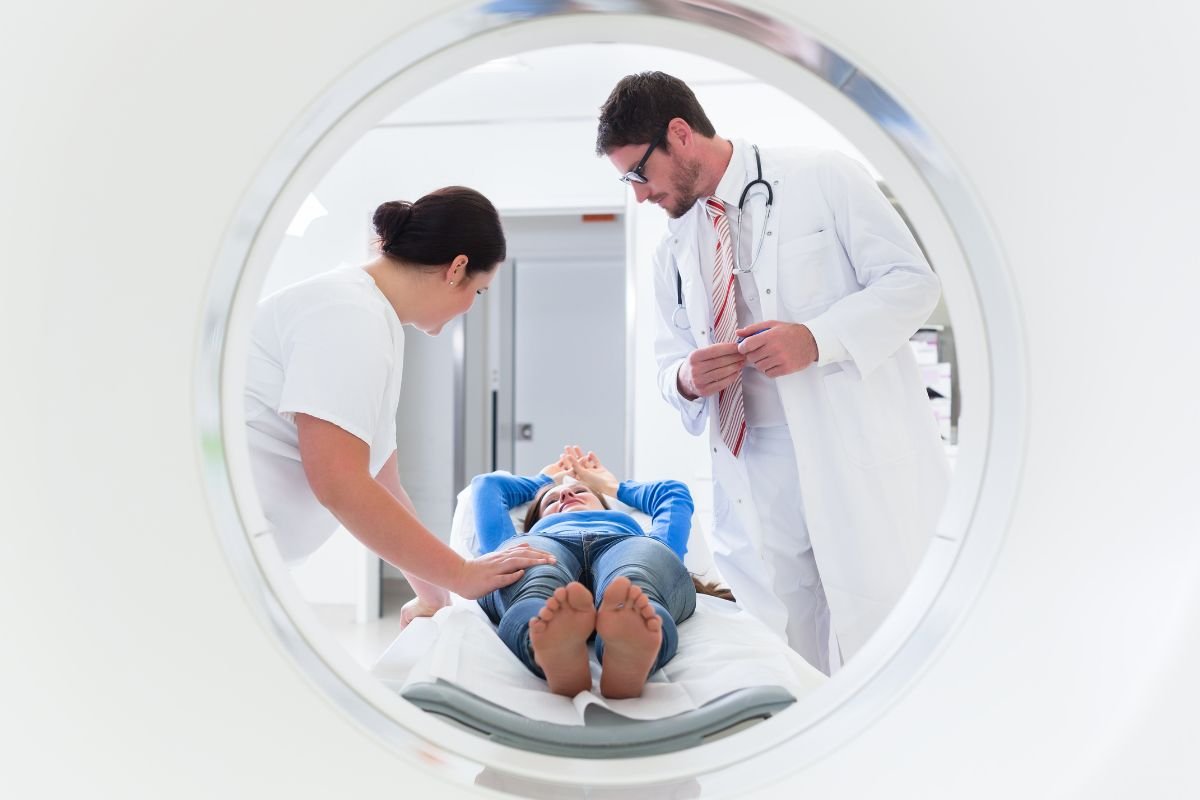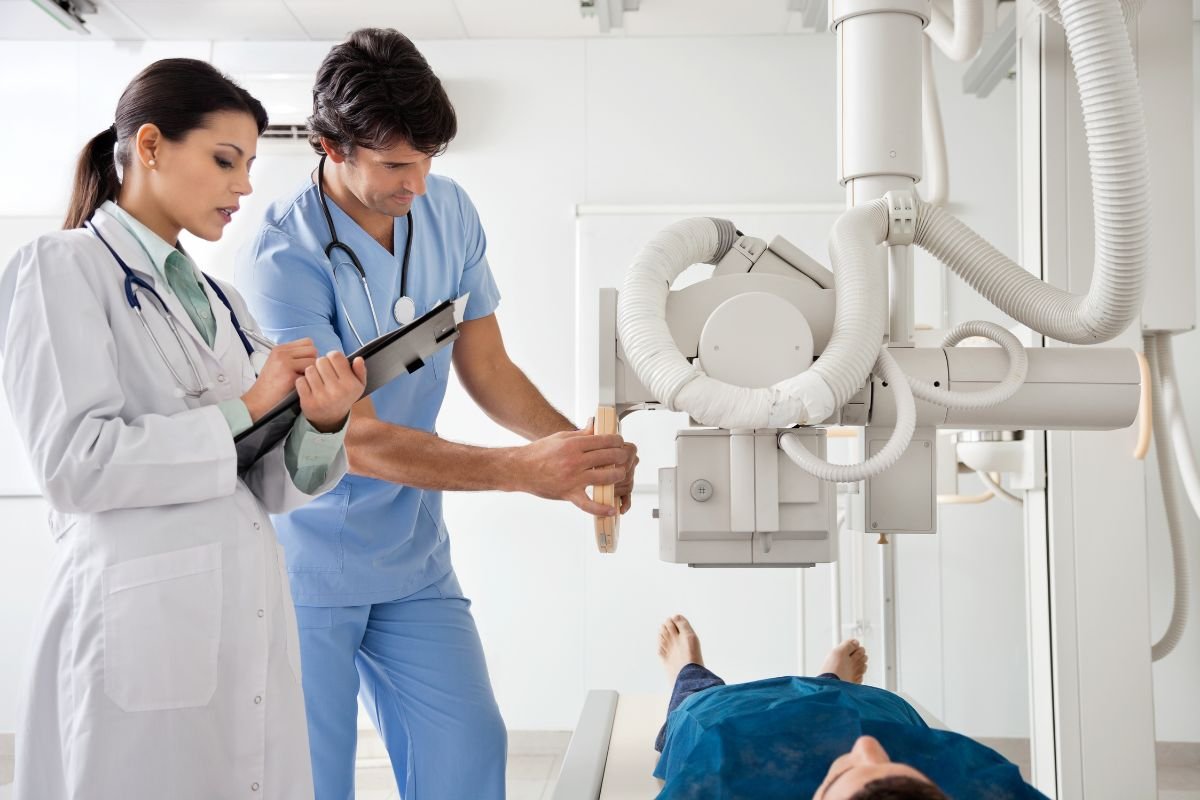Radiology tech certification is a crucial milestone for individuals pursuing a career in radiology technology. As the field of radiology continues to advance with new technologies and methodologies, the need for certified radiologic technologists has never been more pronounced. This article provides an in-depth exploration of radiology tech certification, including its importance, the certification process, the types of certifications available, and the benefits it offers to professionals in the field.
What is Radiology Tech Certification?
Radiology tech certification is a formal recognition awarded to individuals who have successfully met the educational and professional requirements set by certifying bodies in the field of radiologic technology. This certification validates a technologist’s skills, knowledge, and competence in performing diagnostic imaging procedures. Radiology tech certification is essential for ensuring that technologists adhere to high standards of practice and provide quality patient care.
The Importance

- Professional Credibility: It serves as a testament to a technologist’s expertise and commitment to the field. Certified professionals are often preferred by employers and healthcare institutions due to their proven competence and adherence to industry standards.
- Quality Patient Care: Certified radiologic technologists are trained to perform imaging procedures accurately and safely, which is crucial for diagnosing and treating medical conditions. Radiology tech certification ensures that professionals are equipped with the knowledge to operate imaging equipment effectively and interpret results correctly.
- Career Advancement: Obtaining radiology tech certification can open doors to various career opportunities and advancement within the field. Certified technologists are often eligible for higher-paying positions and specialized roles, contributing to their overall career growth and job satisfaction.
- Regulatory Compliance: Many states and healthcare facilities require radiology tech certification as a legal or institutional requirement. Certification ensures that technologists meet regulatory standards and are compliant with state and federal regulations governing radiologic practice.
The Certification Process
The path to radiology tech certification involves several key steps, including education, examination, and continuing education. Understanding this process is essential for aspiring radiologic technologists.
1. Educational Requirements
Before pursuing, individuals must complete an accredited radiologic technology program. These programs typically lead to an associate’s or bachelor’s degree and cover fundamental topics such as anatomy, patient care, radiographic procedures, and medical ethics. Accredited programs ensure that students receive a comprehensive education and are prepared for the certification examination.
2. Certification Examination
Once educational requirements are met, candidates must pass a certification examination to obtain their radiology tech certification. The most widely recognized certification body is the American Registry of Radiologic Technologists (ARRT). The ARRT offers several certification exams, including:
- ARRT Certification Exam: The ARRT certification exam assesses candidates’ knowledge and skills in radiologic technology. The exam consists of multiple-choice questions and practical scenarios that evaluate a candidate’s competence in various imaging procedures.
- Specialized Certifications: In addition to the general radiology tech certification, the ARRT offers specialized certifications in areas such as computed tomography (CT), magnetic resonance imaging (MRI), and mammography. These certifications allow technologists to demonstrate expertise in specific imaging modalities.
3. Continuing Education
It is not a one-time achievement but requires ongoing professional development. Certified radiologic technologists must complete continuing education courses to maintain their certification and stay current with advancements in the field. Continuing education ensures that professionals remain knowledgeable about new technologies, techniques, and best practices.
Types of Radiology Tech Certifications
It can vary based on specialization and professional focus. Here are some common types of certifications available to radiologic technologists:

1. ARRT Certification
The ARRT certification is the most recognized in radiologic technology. It covers various areas, including:
- Radiography: The foundational certification for general diagnostic imaging. Radiography certification demonstrates competence in performing X-ray exams and producing diagnostic images.
- Computed Tomography (CT): This certification focuses on advanced imaging techniques using computed tomography. Technologists with CT certification are skilled in performing and interpreting CT scans.
- Magnetic Resonance Imaging (MRI): MRI certification highlights expertise in magnetic resonance imaging technology. MRI technologists are trained to perform MRI scans and analyze imaging results.
- Mammography: Mammography certification is designed for technologists specializing in breast imaging. Certified mammographers are proficient in performing and interpreting mammograms for breast cancer screening and diagnosis.
2. Specialized Certifications
In addition to the general ARRT certification, radiologic technologists can pursue specialized certifications in niche areas of radiology, such as:
- Nuclear Medicine Technology: This certification focuses on using radioactive materials for diagnostic and therapeutic purposes. Nuclear medicine technologists are skilled in performing and interpreting nuclear imaging studies.
- Radiation Therapy: Certification in radiation therapy emphasizes the use of radiation for cancer treatment. Radiation therapists work closely with oncology teams to deliver precise doses of radiation to patients.
- Cardiovascular-Interventional Radiography: This certification is for technologists specializing in imaging procedures related to the cardiovascular system. It involves performing and assisting with interventional radiology procedures.
Benefits
Obtaining radiology tech certification offers numerous benefits to professionals in the field, including:
1. Enhanced Job Prospects
Certified radiologic technologists are often preferred by employers and healthcare facilities due to their demonstrated competence and adherence to industry standards. Certification can lead to increased job opportunities, higher salaries, and greater career stability.
2. Professional Recognition
Radiology tech certification provides professional recognition and validation of a technologist’s skills and expertise. Certified individuals are viewed as experts in their field, enhancing their credibility and reputation within the healthcare industry.
3. Increased Earning Potential
Certified radiologic technologists typically earn higher salaries compared to their non-certified counterparts. The specialized knowledge and skills acquired through certification contribute to increased earning potential and career advancement.
4. Career Flexibility
Radiology tech certification allows professionals to explore various career paths within the field of radiologic technology. With specialized certifications, technologists can pursue roles in different imaging modalities, research, education, and leadership positions.
5. Personal Fulfillment
Achieving radiology tech certification provides a sense of personal accomplishment and fulfillment. The rigorous preparation and examination process reflect a technologist’s dedication to their profession and commitment to delivering quality patient care.
How to Prepare for Radiology Tech Certification
Preparation is key to successfully obtaining radiology tech certification. Here are some tips for preparing for the certification examination:

1. Study Materials
Utilize study guides, textbooks, and online resources to review key concepts and topics covered in the certification exam. Many certification bodies offer official study materials and practice exams to help candidates prepare effectively.
2. Practice Exams
Taking practice exams is an excellent way to familiarize yourself with the exam format and identify areas that require further study. Practice exams can help build confidence and improve test-taking skills.
3. Review Course Content
Thoroughly review the content covered in your radiologic technology program. Focus on core areas such as imaging procedures, patient care, radiographic anatomy, and safety protocols.
4. Join Study Groups
Joining study groups or participating in review courses can provide additional support and motivation. Collaborating with peers can enhance your understanding of challenging topics and offer valuable insights.
5. Stay Informed
Keep up-to-date with advancements in radiologic technology and changes in certification requirements. Staying informed ensures that you are well-prepared for the exam and aware of industry trends.
Maintaining Your Radiology Tech Certification
Once obtained, radiology tech certification requires ongoing maintenance to ensure continued professional competence. Here are key steps to maintain your certification:
1. Complete Continuing Education
Radiologic technologists must complete continuing education courses to maintain their certification. Continuing education requirements vary by certifying body and specialization, so be sure to review the specific requirements for your certification.
2. Renew Certification
Certifications typically have an expiration date, requiring renewal every few years. Renewal involves submitting documentation of continuing education and paying any applicable fees. Review the renewal process for your specific certification to ensure compliance.
3. Stay Current with Industry Changes
Stay informed about changes in radiologic technology, best practices, and regulatory updates. Continuous professional development helps you remain knowledgeable and adaptable in a rapidly evolving field.
Conclusion
Radiology tech certification is a vital aspect of a successful career in radiologic technology. It not only validates a technologist’s skills and knowledge but also opens doors to various career opportunities and professional growth. By understanding the certification process, types of certifications available, and the benefits they offer, aspiring radiologic technologists can make informed decisions about their career path. Preparing for and maintaining certification requires dedication and ongoing education, but the rewards—enhanced job prospects, professional recognition, and personal fulfillment—make it a worthwhile endeavor. Embrace the journey toward it, and position yourself for success in this dynamic and rewarding field.









